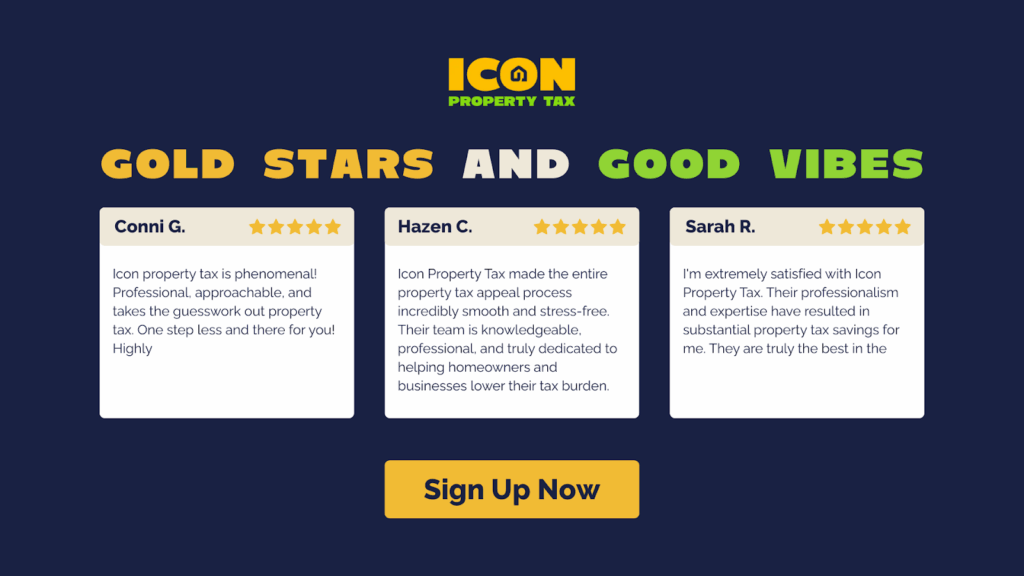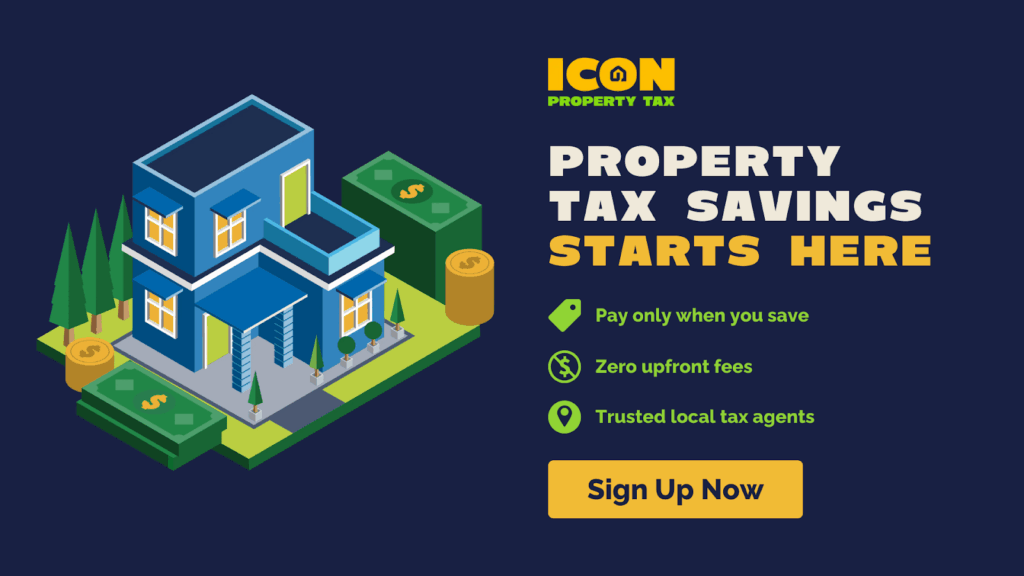Austin Living Costs: Housing, Income, And Daily Expenses
August 17, 2025
Key Takeaways:
- Housing Insight: Austin’s rising home and rent prices are the largest factor increasing the city’s overall cost of living.
- Tax Savings Tip: Property taxes are one of the most overlooked costs in Austin, but appealing them can lead to real savings.
- Budgeting Strategy: Everyday expenses like groceries, childcare, and transportation are steadily rising, making cost management essential.
Austin is one of the fastest-growing cities in the country. Its creative culture, tech-driven economy, and vibrant lifestyle attract newcomers daily. But with that growth comes a cost, and for many, that cost is becoming harder to manage. Housing prices are higher, property taxes are climbing, and everyday essentials now demand more from every paycheck. Whether you’re new to the city or a longtime resident, understanding Austin’s cost of living is essential for making smart decisions about where and how you live.
At Icon, we’ve helped thousands of Texas homeowners reduce their property tax burden with a success rate that speaks for itself. Our work is rooted in one mission: to protect your investment by making sure you’re never paying more than you should. With years of experience handling property tax protests across the state, we know the numbers, and we know how they impact your bottom line.
In this piece, we’ll break down the true cost of living in Austin, from housing and income to daily expenses, and show you where savings are possible, especially when it comes to your property taxes.
What Is The Cost Of Living In Austin?
Austin has become one of the most talked-about cities in the country, thanks to its tech boom, culture, and overall lifestyle. But with its popularity comes a rising cost of living. While still more affordable than places like San Francisco or New York, Austin’s living costs have steadily increased in recent years.
From housing and groceries to transportation and healthcare, the average cost of living in Austin is higher than the national average. According to recent data, Austin residents can expect to spend about 7–10% more than the U.S. average on everyday expenses.
Much of this is driven by the real estate market, which has seen significant price jumps over the past decade. Still, many residents find that the city offers enough opportunity, quality of life, and economic growth to make the higher cost worth it.
And when it comes to protecting your property investment, Icon helps homeowners reduce their property taxes with zero upfront cost. Lower your tax burden today.

Housing Costs In Austin
Housing is the biggest factor impacting the overall cost of living in Austin. Whether you’re renting or buying, prices have climbed sharply over the past decade. In some neighborhoods, home values have doubled, driven by high demand and limited inventory.
As of this year, the median home price in Austin hovers around $480,000, although this can vary significantly by neighborhood. Central Austin and popular suburbs like West Lake Hills or Mueller tend to have even higher prices, while areas further out may offer more affordability.
For renters, the average monthly rent for a one-bedroom apartment in Austin is about $1,500, with prices increasing the closer you get to downtown. New developments and luxury apartments can push that number well beyond $2,000.
While these numbers can feel overwhelming, there are ways to protect your investment as a homeowner. At Icon, we work to lower your property tax burden, and if we don’t save you money, you pay nothing. Get started today.
Average Income In Austin
Thanks to its growing tech sector and strong job market, Austin’s median household income is around $89,000, which is higher than both the Texas and national averages. Of course, income varies widely depending on industry. Tech professionals, engineers, and healthcare workers often earn well above the median, while service and hospitality workers typically earn less. The rise in remote work has also brought in high-income earners from out of state, adding more complexity to the income landscape.
While Austin offers strong earning potential, many residents still feel the squeeze when it comes to affording rising housing and utility costs. If you’re a homeowner, cutting back on property taxes can help ease that pressure. Icon offers a no-risk solution, no savings, no fee. See how much you could save.
Everyday Expenses You Should Know
Beyond housing, everyday costs in Austin can add up quickly. Here’s a breakdown of some typical monthly expenses for a single person living in the city:
- Utilities: Around $180 for electricity, water, and trash services
- Internet: Roughly $60–$80 per month
- Groceries: Estimated at $300–$400, depending on eating habits
- Transportation: About $150–$200, especially if you rely on a car
- Healthcare: Varies widely, but the average out-of-pocket monthly cost is around $300
While these expenses are manageable for many, it’s clear that the cost of living in Austin continues to rise in all areas. If you’re a homeowner, reducing unnecessary costs like high property taxes can make a real difference. With Icon, there’s zero upfront cost to get started; we only charge if you save. Start your property tax review today.
How Austin Compares To Other Texas Cities
Compared to other major cities in Texas, Austin consistently ranks as one of the most expensive places to live. While it offers a strong job market and a high quality of life, those benefits come at a cost.
Let’s take a quick look at how Austin stacks up:
- Austin vs. Dallas: Dallas has a lower cost of housing and slightly cheaper everyday expenses. However, Austin tends to offer higher wages in tech and creative sectors.
- Austin vs. Houston: Houston remains more affordable overall, especially when it comes to housing and fuel. But Austin’s lower crime rates and vibrant culture often justify the price difference for many residents.
- Austin vs. San Antonio: San Antonio offers significantly lower home prices and cost of living, but fewer high-paying job opportunities. Austin’s economy is more robust, particularly in technology and innovation.
In short, Austin is more expensive, but it often delivers more value in return, especially for those in high-growth industries. And if you’re concerned about your rising property tax bill, that’s exactly where Icon comes in. Let us help you keep your investment protected.

Tips For Managing Costs In A Growing City
Living in a rapidly growing city like Austin requires smart financial planning. As the population increases and costs rise, it’s important to find ways to manage your budget without sacrificing quality of life. Here are a few practical tips:
Consider Less Central Neighborhoods
While downtown living may be convenient, it comes with a premium price tag. Exploring neighborhoods like Pflugerville, South Manchaca, or even parts of East Austin can give you more space and significantly lower monthly costs. These areas are often quieter, family-friendly, and still within reasonable commuting distance.
Use Public Transportation Or Carpooling
Owning a vehicle in Austin comes with insurance, gas, maintenance, and parking expenses. CapMetro offers a range of public transportation options that can reduce or eliminate many of those costs. Carpooling with coworkers or neighbors is another easy way to stretch your transportation budget.
Take Advantage Of Free Events
Austin is known for its vibrant culture, and much of it is accessible without spending a dime. From live music in Zilker Park to community art walks and seasonal festivals, there’s almost always something happening that won’t cost you anything. These experiences help you enjoy the city without breaking your budget.
Track Recurring Expenses
Streaming services, subscription boxes, and app charges often fly under the radar. Reviewing your bank or credit card statements monthly can help identify charges you no longer use or need. Even canceling two or three unused subscriptions can save you hundreds of dollars per year.
Appeal Your Property Taxes
With property values increasing rapidly in Austin, it’s not uncommon for homeowners to be over-assessed. Many people simply accept their tax bill without realizing they have the right to appeal. Partnering with experts like Icon ensures that you get the fair valuation you deserve, and you only pay if we reduce your tax bill. Start your appeal today.
Save On Property Taxes With Icon
If you’re a homeowner in Austin, you’ve probably noticed your property tax bill creeping higher each year. As home values rise, so do assessed values, and that can translate into thousands of dollars in added expenses annually. What many don’t realize is that these assessments are often inflated or inaccurate, and you have the right to challenge them.
That’s where Icon comes in. Our team specializes in property tax protests across Texas, and we’ve helped thousands of homeowners save money without lifting a finger. You don’t need to understand the tax code or attend hearings; we handle the entire process for you.
Best of all, there’s zero upfront cost. With our no-savings, no-fee pledge, you only pay if we successfully lower your property tax bill. That means you can protect your investment and your budget with absolutely no risk.
Let us help you keep more of your money where it belongs, in your pocket. Get started with Icon today.

Final Thoughts
Austin continues to offer a unique blend of career opportunities, cultural energy, and outdoor lifestyle, but that comes with a rising price tag. From housing and utilities to groceries and healthcare, the cost of living in Austin is higher than in many other Texas cities and shows no signs of slowing down.
Still, there are plenty of ways to manage those costs and make Austin living sustainable. Smart budgeting, exploring affordable neighborhoods, and cutting unnecessary expenses can go a long way. And if you’re a homeowner, lowering your property taxes can be one of the most effective ways to protect your finances.
Icon is here to help you do exactly that. With no upfront fees and a pay-only-when-you-save model, there’s no reason not to explore your options. Take the first step today and see how much you could save.
Read Also:
- DuPage County Property Tax Overview: Rates, Assessments, and Billing Cycles
- Kane County Property Tax Overview: Rates, Assessments, And Billing Cycles
- Will County Property Tax Overview: Rates, Assessments, And Billing Cycles
Frequently Asked Questions About Austin Living Costs
Is the cost of living in Austin different for students?
Yes, students in Austin often face unique financial challenges, especially with limited income. However, many universities provide affordable housing, student discounts on transportation, and access to campus amenities, which can help offset costs.
How does the cost of utilities in Austin vary by season?
Utility costs in Austin can spike during the summer due to high air conditioning usage. Winters are milder, which means heating costs are generally lower than in northern cities, leading to seasonal fluctuations.
Are property taxes in Austin higher than the national average?
Yes, Texas has some of the highest property tax rates in the country, and Austin’s rising home values mean residents often pay significantly more than the national average, even without a state income tax.
What’s the average grocery bill for a family in Austin?
A typical family of four might spend between $700 and $900 per month on groceries in Austin, depending on dietary preferences, shopping habits, and whether they shop at premium or discount grocery stores.
Do Austin locals rely more on cars or public transportation?
Most residents still depend on personal vehicles, but public transportation is gradually improving. CapMetro serves many areas, but suburban neighborhoods may have limited access, leading to higher car ownership costs.
Are healthcare costs in Austin higher than in other cities?
Healthcare in Austin is close to the national average but can vary based on insurance coverage and provider networks. Private insurance and out-of-pocket costs can be significant without employer-based plans.
How much does childcare typically cost in Austin?
Childcare in Austin can range from $800 to $1,500 per month per child, depending on the facility, age of the child, and services offered. Waiting lists for popular centers can also drive up demand and cost.
Is Austin’s cost of living rising faster than wages?
Yes, in many cases, wages have not kept up with the increase in housing, rent, and basic services. While some sectors (like tech) have seen strong wage growth, others have lagged behind.
Do renters pay property taxes indirectly in Austin?
They do. While renters don’t pay property taxes directly, landlords typically factor property tax costs into monthly rent, meaning rising taxes can contribute to higher rent prices.
How much should someone earn annually to live comfortably in Austin?
To live comfortably in Austin, a single person typically needs to earn around $60,000–$70,000 per year, while a family would need closer to $100,000 or more, depending on lifestyle and expenses.

